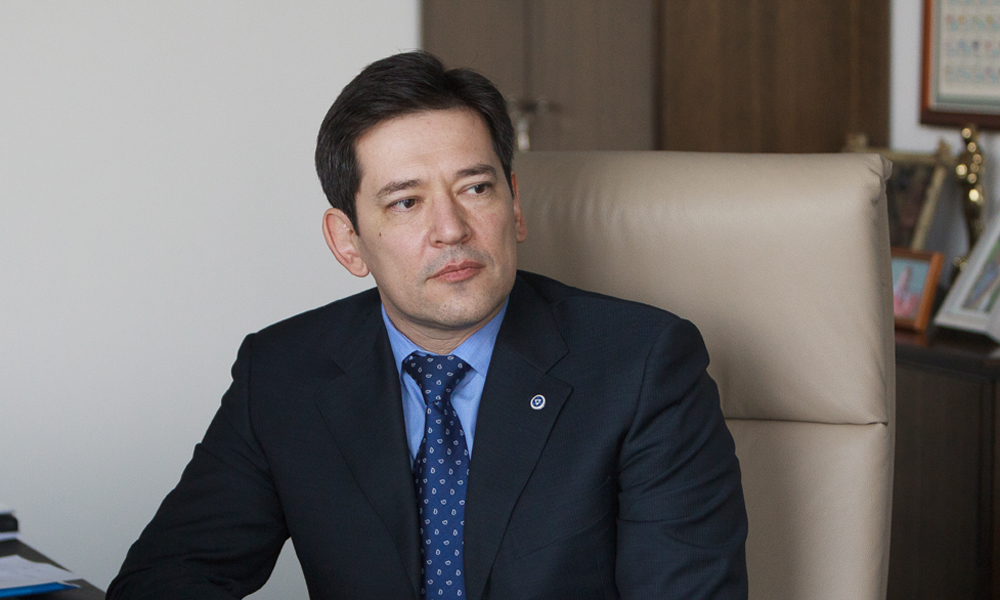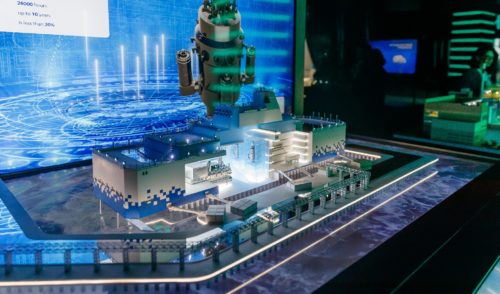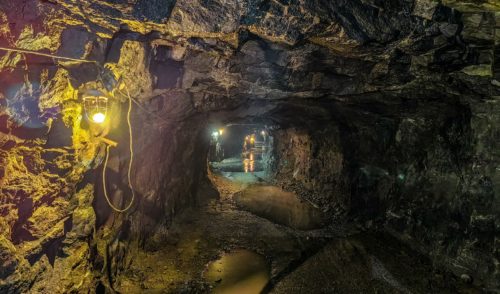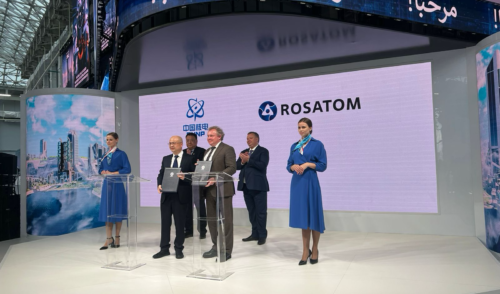
Alexander Merten: Nuclear Plants Are Not Our Only Global Product
back to contents– Much attention during the Nuclear Week was given to Rosatom’s non-nuclear products. Why does the company focus on this line of business?
– Our core product – nuclear power plants and related construction and operation services – is well known to everyone. This is where Rosatom holds a strong lead globally. The Nuclear Week was organized specifically to present our non-nuclear and non-energy products. Rosatom’s mechanical engineering division AEM manufactures machinery for both nuclear and non-nuclear industries, such as petrochemistry and thermal power generation. ASE Group, another division of the nuclear corporation, provides engineering design and consulting services in nuclear or other construction projects. ASE has developed and piloted the Multi D technology offering online control of design, procurement, construction and budgeting processes in the construction of complex industrial facilities. Other divisions of Rosatom specialize in applying nuclear technologies in medicine and agriculture and developing renewable energy. We are observing much interest to wind power on the global scale, and we have solutions to be offered to those interested. Having won a contract to build 970 MW in wind generation capacity in Russia by 2024, Rosatom has become a leader of the national wind power industry. AEM’s subsidiary Ganz Engineering and Energetics Machinery (Ganz EEM) based in Hungary has developed containerized small hydro power plants. The first contract has already been signed to deliver one of them to Georgia.
– What would you mention as key areas of cooperation with Kazakhstan?
– Our cooperation with Kazakhstan dates back many years. For example, we have long been working with our partners from Kazatomprom. Our five joint ventures operating in Kazakhstan extract uranium by in-situ leaching with the lowest production costs in the world. We are also working on a low enriched uranium reserve project in Kazakhstan. Besides, Kazatomprom is a co-owner of the Uranium Enrichment Center established in Russia at the Ural Electrochemical Plant, the world’s largest uranium enrichment plant. We see that Kazakhstan is interested in creating food irradiation facilities. An agreement to this effect was signed with Antares Group at Atomexpo 2017 held in June in Moscow. Other areas of interest include nuclear medicine, petrochemical equipment, and construction of wind parks and small hydro power plants in the country. Kazakhstan is seen by us as one of our major partners. We are members of the Customs Union, and our cooperation can be of great interest for the both parties in terms of economic benefits.
– Could you give more detail on your joint plans to develop renewable energy in Kazakhstan?
– The Government of Kazakhstan has adopted a renewable energy development plan to increase the share of renewable sources to 50% of the national energy mix by 2050. The country is ideally positioned to develop renewables, including lower tariffs for electricity from renewable energy sources, such as wind and hydro power facilities, and favorable climatic conditions. Natural water bodies in Southern Kazakhstan, mostly mountain rivers, allow for effective use of our small hydro power plants.
Renewable energy has a positive effect on the environment as it reduces greenhouse gas emissions. But we should not forget about more stable power sources that could provide a sustainable electricity supply for public and industrial needs regardless of the weather. It is good that Kazakhstan intends to develop its carbon-free power industry in line with the Paris Agreement, which provides for the reduction of СО2 emissions. It would also be logical to develop nuclear energy because it is able to provide baseload power.
The idea of building a nuclear power plant in Kazakhstan has been discussed with our Kazakh partners for long. The country is going to adopt its national nuclear strategy in 2018. We hope that Kazakhstan will finally venture to develop its nuclear power industry – all the more so because the country has everything it needs for this purpose, including uranium mines, the Ulba Metallurgical Plant manufacturing uranium products, and a stake in the Russia-based Uranium Enrichment Center. In our turn, we are ready to offer our latest solutions for the construction and operation of nuclear power plants. As you know, Russia has already commissioned the world’s first Generation 3+ power unit at Novovoronezh. It operates commercial fast neutron reactors and carries out the Breakthrough Project that will close the nuclear fuel cycle. I believe that our technology might be of interest for Kazakhstan, given the fact that the first fast neutron reactor was built and operated in Aktau (Kazakhstan) supplying the entire city with fresh water.
Calling for the nuclear energy development, we by no means see nuclear power as opposing renewables – otherwise Rosatom would not build wind parks. What we want to stress is that nuclear and renewable sources of power are integral components of a carbon-free power industry.
– What is the progress in cooperation with Vietnam that decided to mothball its nuclear program and suspend the nuclear plant construction? Can the decision stimulate joint initiatives of building renewable power stations in that country?
– We respect the decision made by Vietnam and are ready to resume the dialog if the country’s government so decides. But nuclear power plants are not Rosatom’s only product on the global market. At the moment, we are working on the construction of a nuclear science and technology center in Vietnam in accordance with the cooperation agreement signed in 2011. The memorandum of understanding on the project was signed on 29 June in Moscow. Once the feasibility study is approved by the Vietnamese government, we will start consultations on the project finance. We also intend to work out a joint plan to develop Vietnam’s nuclear infrastructure. In addition, Rosatom contributed to establishing the Nuclear Information Center in the country. It is aimed at raising public awareness and promoting engineering sciences. We hope that these efforts will change the general public attitude to nuclear power and technologies and will someday persuade Vietnam to revise its decision on nuclear power plants.
– Late last year Rosatom’s subsidiary concluded the first contract to deliver and install a small hydro power plant in Georgia. When will the project be completed?
– Completion of the project depends on our customer as much as on us. According to the contract, the customer is to carry out a groundwater study and select a site for the plant installation. Once the study is over, we will be able to install the unit. I would like to note that this product has drawn much attention of almost every country worldwide. Negotiations are now underway to deliver these plants to Southeast Asia and Africa. Similar talks are running with Kazakhstan. There are companies wishing to distribute our products, and we have already signed a framework agreement with a company from South Africa. The main advantage of small hydro power plants is that they require no dams or massive structures to be built and generate ‘green’ power.




